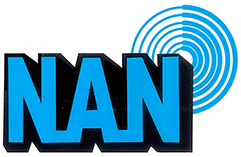Metro
Nigeria Customs inaugurates advance ruling system to improve trade

By Martha Agas
The Nigeria Customs Service (NCS) on Thursday inaugurated its Advance Ruling System to enhance trade facilitation in Abuja.
It has also organised stakeholders` engagement to foster mutual understanding of its programmes and to facilitate the rollout of the system.
Speaking at the event, the Comptroller General (C-G) of NCS, Adewale Adeniyi, said that the move was aimed at creating a more transparent and predictable business environment for its stakeholders.
Adeniyi described advanced ruling as a critical mechanism that allows traders obtain binding decisions from customs administrations on the classification, origin and valuation of goods before importation.
“This tool is essential for promoting trade facilitation, reducing compliance costs and fostering a conducive business environment, “he said.
The News Agency of Nigeria (NAN) reports the joint sponsorship by the Global Alliance for Trade Facilitation and the European Union-World Customs Organisations (EU-WCO) Rules of Origin (RoO) Africa Programme for NCS personnel training in January on advance ruling skills for rules of origin.
NAN also reports that both the World Customs Organisation and the World Trade Organisation have emphasised the significance of advance ruling in facilitating international trade and promoting customs compliance by aiding traders in making informed business decisions.
The C-G described the launch of the system as timely, aligning with the policy directive of President Bola Tinubu’s administration to facilitate ease of trade for legitimate traders.
“This is reflected in the Policy Advisory Document of the government, which highlights recent achievements, such as the approval to decongest the ports and make them free and accessible for importers and operators.
“Additionally, the recent inauguration of the Single Window steering committee by the President underscores high-level commitment to enhancing trade facilitation in Nigeria, “ he said.
He added that the implementation was also timely, particularly considering the significant number of disputes the service had to handle between 2020 and 2023.
According to him, out of the 34 disputes, 31 have been resolved, while three cases are still pending.
“Additionally, in spite of the absence of a structured mechanism, a total of 296 requests for Tariff opinions were received, with 266 processed and 30 pending.
“It is crucial to note that the absence of this mechanism has implications beyond Trade Facilitation, as it also impacts our revenue, “he said.
He said that the service would organise workshops and sensitisation sessions at its Area Commands to ensure the successful implementation and to ensure stakeholders` understanding for effective use.
The C-G said he had given approval for the development of a handbook to provide guidance to traders and customs officers, and also to ensure consistency and transparency in the service`s rulings.
He thanked the German International Cooperation Agency (GIZ) for supporting its commitment to facilitate ease of trade.
Earlier in his remarks, the Country Director of GIZ, Dr Markus Wagner, said that the advance ruling system was part of the Nigeria Energy Support Programme, funded by the German Federal Ministry for Economic Cooperation and Development.
Represented by Duke Benjamin, the Cluster Coordinator for GIZ Nigeria Programmes on Just Transition and Inclusion, he said the knowledge provided by the advance ruling would facilitate improvement in investments in Nigeria.
He added this was due to the clarity it brought on trade processes. (NAN) (www.nannews.ng)
Edited by Abiemwense Moru
Source
Disclaimer: No copyright infringement intended. All rights and credits reserved to respective owner(s).












